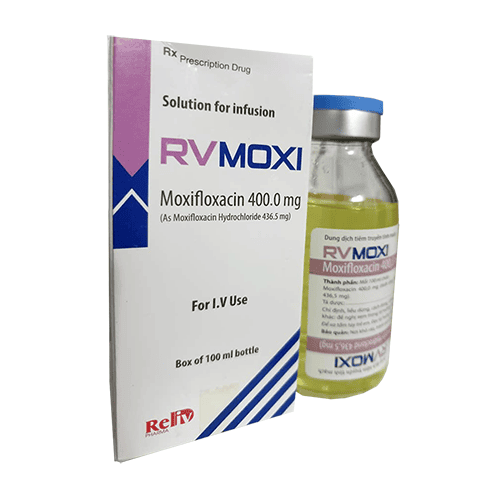This is an automatically translated article.
Bravine medicine contains Cefdinir 125mg, oral powder dosage form. Before using Bravine, patients should consult their doctor for advice and instructions. Here are some information to help you understand what Bravine does?
1. What does Bravine do?
The Cefdinir ingredient in Bravine is an antibiotic that is taken orally. Cefdinir has the ability to inhibit the synthesis of bacterial cell walls, thereby effectively killing bacteria.
Bravine is not affected by the enzyme Beta - Lactamase, which helps the body fight Gram-negative and Gram-positive bacteria. The drug is effective against both strains of bacteria that are resistant to 1st and 2nd generation Cephalosporins such as Enterobacter and Pseudomonas Aeruginosa
Bravine to treat susceptible strains of bacteria such as Staphylococcus Aureus, Haemophilus Influenzae, E.Coli, Streptococcus Pyogenes, Proteus Mirabilis and Staphylococcus Epidermidis...
2. Indications of Bravine Inmed
Bravine is indicated for the treatment of:
Community-acquired pneumonia; Acute maxillary sinusitis ; Chronic bronchitis ; Bacterial infections inside or outside the skin; Sore throat; Tonsillitis ; Anticonvulsants (used when prescribed by a doctor).
3. Contraindications of Bravine
Bravine is contraindicated in case of hypersensitivity to the components of the drug or the antibiotic Cephalosporin.
4. Dosage and how to take Bravine
How to use: Bravine is taken orally. Patients should invert and shake the vial of Bravine well before use. Then add enough water to the vial and close the cap, shake well to disperse the powder. When the drug is dissolved, take the correct dose to drink. Bravine can be stored in the refrigerator after being mixed.
Dosage:
For patients weighing > 9kg: Drink 5ml of suspension x 1-2 times/day; For patients weighing > 18kg: Drink 10ml of suspension x 1-2 times/day; For patients weighing > 27kg: Drink 15ml of suspension x 1-2 times/day; For patients weighing > 36kg: Drink 20ml of suspension x 1-2 times/day; For patients weighing > 43kg: Drink 24ml of suspension x 1-2 times/day. People with kidney disease need to consult a doctor to get the right dose.
5. Bravine side effects
Possible side effects when using Bravine drugs include:
Common: Abdominal pain, gastrointestinal disturbances, vomiting/nausea, itching, urticaria and headache. Uncommon: Anaphylactic reactions, arthralgia, liver enzyme disorders and cholestatic jaundice... Rare: Nephritis and eosinophilia. The effects of Bravine are usually mild and not serious. However, serious side effects of Bravine can still occur, so should not be subjective. If you experience the above symptoms, the patient should stop using Bravine and notify the doctor or pharmacist for appropriate treatment.
6. Bravine drug interactions
Bravine may have an interaction reaction if used concurrently with:
Drugs that have the effect of neutralizing gastric acid (containing Al and Mg); Products containing iron; Drug Probenecid ; Medicines Nitroprusside; Diuretic ; Aminoglycoside drugs; Polymyxin group antibiotics. To avoid interactions, before being prescribed Bravine, patients should inform their doctors about all the drugs they are using, including supplements. The doctor will base on that to prescribe the appropriate Bravine.
In addition, the process of using Bravine medicine, patients also need to pay attention when checking their health regularly, listing the medical history with the doctor. Based on the information provided, patients will be advised in detail about Bravine and how to use it safely and effectively.
7. Notes and cautions when using Bravine
Some issues that patients need to pay attention to when using Bravine drugs include:
Do not use Bravine drugs past the expiry date; Do not arbitrarily use Bravine to re-treat and stop without the consent of the doctor; People with kidney disorders or kidney failure need to be careful when using Bravine; Before using Bravine, it is necessary to carefully check the history of drug allergy; Long-term use of Bravine is not recommended because it can cause drug resistance. If there are signs of superinfection, you should stop using it and immediately notify your doctor for a suitable treatment plan; Use caution when using Bravine for people with gastrointestinal diseases; Pregnant and lactating women should consult their doctor for the right dose of Bravine.
8. How to deal with missed dose, overdose of Bravine
Missed dose:
In case you miss a dose of Bravine, you should make up for it as soon as possible. However, if it is almost time for your next dose, skip the missed dose of Bravine and use a new dose. Overdose:
When Bravine is used in excess, it can cause convulsions. Patients need to stop taking Bravine immediately and go to the nearest medical facility for timely treatment. The article has provided information about Bravine's effects, dosage and use notes. To ensure safety for your health and maximize the effectiveness of your treatment, you need to take Bravine medicine exactly as directed by your doctor. Store Bravine in a cool, dry place below 30 degrees Celsius and out of the reach of small children.
Please dial HOTLINE for more information or register for an appointment HERE. Download MyVinmec app to make appointments faster and to manage your bookings easily.













